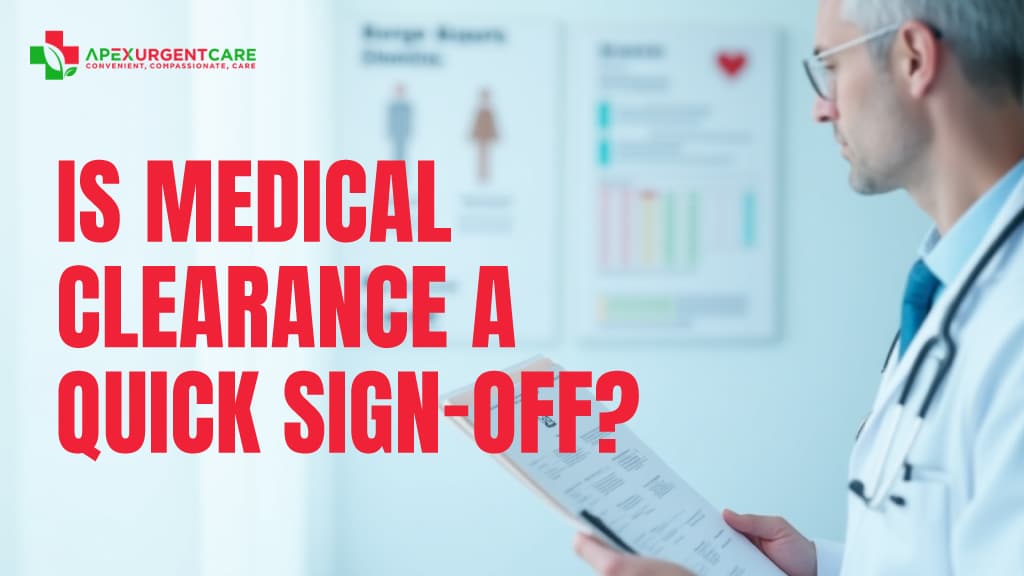
Have you been asked for a medical clearance before surgery, and now you’re wondering if it is a formality? Or do you need another appointment to get “cleared”?
The truth is, medical clearance is not about our Houston doctor stamping approval and moving on. It’s ensuring you are ready for surgery. Think of it as a pre-flight checklist for your health. You wouldn’t want a pilot skipping steps before take-off?
Let’s discuss medical pre-op clearance, how it works, and why it matters.
Is Medical Clearance a Quick Sign-Off?

No. Medical clearance isn’t a yes-or-no stamp on your file. It’s a thorough preoperative evaluation that assesses your health, medications, chronic conditions, and how your body might respond to surgery and anesthesia. The goal is to find red flags early and make adjustments that can prevent complications.
So, instead of asking “Am I cleared?”, a better question is: “Have I been evaluated for all possible risks?”
Why Does It Matter?
It matters because the goal of medical clearance is to make surgery safe.
At Apex MD Clinic, we approach every preoperative evaluation with fresh eyes. Your clearance is not a formality; it’s an opportunity. It’s a chance to find unseen issues, coordinate your care, and give you the best possible shot at a smooth procedure and a speedy recovery.
So, don’t think of it as getting “cleared.” Think of it as getting prepared.
What Happens During a Medical Clearance Visit?
- Review of your medical history.
- Physical exam — your vitals, breathing, heart sounds, and more.
- Medication review — identifying what to pause and what to continue.
- Test review or ordering — labs, EKG, imaging, or referrals only if needed.
- Risk mitigation includes how to manage blood sugar and blood pressure before, during, and after surgery.
It’s not just about checking boxes—it’s about protecting your outcome.
What Happens If the Clearance Is Rushed or Incomplete?
If a medical clearance note says, “Cleared for surgery,” without details, that is a problem for the patient and the doctor. Poor documentation has been associated with malpractice claims, especially when preventable complications arise.
Another issue: when there’s poor coordination between your primary doctor, surgeon, and anesthesiologist, important risks can fall through the cracks. That’s why our team in Houston takes time to connect with everyone involved in your care, not just sign a form and send you on your way.
What Should You Bring to Your Appointment?
To get the most out of your medical clearance visit, make sure to bring: A list of your current medications (even supplements), details on recent tests or specialist visits, and information about previous surgeries and how you responded to anesthesia.
That way, your Houston doctor can make smart, tailored decisions to help your surgery go smoothly.
Is Every Patient Treated the Same Way?
No. A young, healthy person having wisdom teeth removed is not the same as a diabetic patient getting a hip replacement. Preoperative evaluations are customized based on your risk profile and the type of procedure you’re undergoing.
For example, if you have heart disease, you might need a cardiology consult. If you have asthma, we may review your inhaler use or recommend breathing treatments before surgery. No two patients are alike, and neither is their clearance plan.
Ready to ensure you are surgery-ready? Schedule your medical pre-op clearance appointment today with our trusted Houston doctor at Apex MD Clinic. Let’s go beyond the checkbox—your health deserves it.

